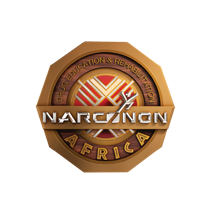Fentanyl – Understanding the Powerful Opioid

Imagine a pain reliever so potent that a minuscule amount no larger than a few grains of salt can be lethal. This is the harsh reality of fentanyl, a synthetic opioid that has a reputation across the globe for taking hundreds of thousands of lives. While it may be used legitimately for medical purposes, its illicit proliferation and extreme potency have fueled a devastating opioid crisis, leaving a trail of addiction, overdose, and heartbreak. Understanding the nature of fentanyl, its effects, and the crucial role of effective rehabilitation is paramount in combating this growing threat.

The effects of fentanyl, like other opioids, stem from its interaction with opioid receptors in the brain, which are involved in regulating pain, pleasure, and breathing. When fentanyl binds to these receptors, it produces a powerful pain relief and can induce a sense of euphoria. However, it also significantly depresses the respiratory system, slowing and shallowing breathing. This respiratory depression is the primary cause of fentanyl-related deaths.
Highly Addictive Potential
Regular use can quickly lead to physical dependence, where the body adapts to the presence of the drug and experiences withdrawal symptoms upon cessation. These withdrawal symptoms can include severe muscle pain, nausea, vomiting, anxiety, and intense cravings, making it incredibly difficult for individuals to stop using fentanyl without professional help. This is where comprehensive rehabilitation becomes a lifeline. Effective rehabilitation programs, such as those offered by Narconon Africa, provide a structured and supportive environment for individuals struggling with fentanyl addiction to safely detoxify and begin the journey towards recovery.
Fentanyl and the Path to Recovery
At Narconon Africa, our approach to rehabilitation is holistic, addressing both the physical and psychological aspects of addiction. Our program focuses on a drug-free withdrawal process, coupled with life skills training designed to equip individuals with the tools they need to overcome cravings, manage stress, and build a fulfilling drug-free life. We understand that overcoming fentanyl addiction requires more than just stopping the drug; it necessitates addressing the underlying reasons for substance use and developing the skills to navigate life challenges without relying on opioids. The journey of rehabilitation is a process of rebuilding, healing, and rediscovering a life free from the grip of fentanyl.
Source:

